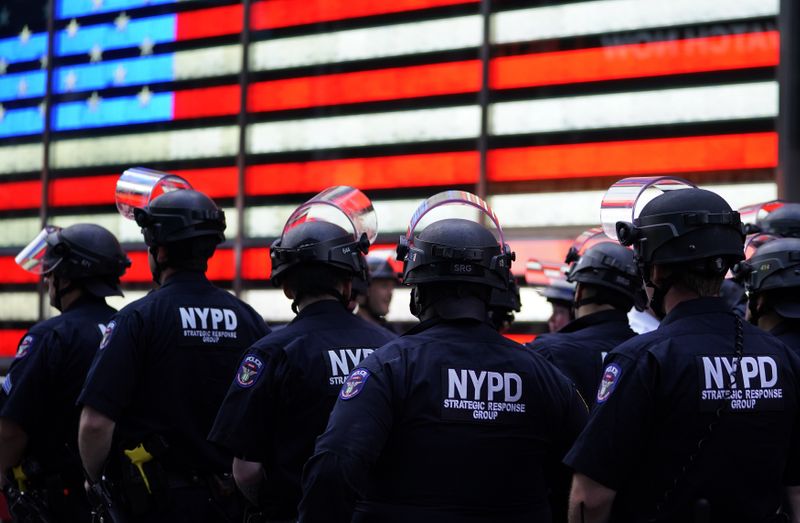
Series: The NYPD Files
Investigating America’s Largest Police Force
A federal appeals court on Tuesday affirmed a lower court ruling allowing New York officials to release police discipline records that had been kept secret for decades.
In the wake of protests over the killing of George Floyd last spring, New York state repealed its controversial 50-a law that had shielded the records from being released. Unions representing New York City’s police officers, firefighters and corrections officers then sued to prevent the disclosures.
A federal judge temporarily barred city officials from releasing the records. But ProPublica, which had previously obtained a portion of the information through a public records request and was not a part of the case, published thousands of the records while the case was being considered.
“Are you asking to put that particular genie back in the bottle?" U.S. District Judge Katherine Polk Failla asked the unions at a hearing held shortly after ProPublica published the records. The judge then ruled the records should be released, and the New York Civil Liberties Union quickly published more of them.
The unions have argued, in part, that records of unproven allegations would harm officers’ chances of finding other jobs, even if the accusations were labeled as unproven. The unions also asserted that publishing the information would put officers in danger.
During a hearing on the unions’ appeal of Failla’s ruling, one of the three judges on the 2nd Circuit panel had noted, “The cat is not only out of the bag, it’s running around the streets.”
This week, the appeals court affirmed the decision, saying the unions hadn’t offered convincing evidence of those outcomes in states where the records are public. “We have considered the Unions’ remaining arguments and conclude that they are without merit,” the judges wrote.
It’s not clear when further disciplinary records will be released. “Good riddance to 50-A,” Mayor Bill de Blasio said in a statement. “We look forward to releasing this data and will seek clarity from the court regarding when these records can be released.”
A spokesperson for the unions told reporters, “We are determining options.” The unions could seek to appeal to the U.S. Supreme Court, which could choose to take the case or not.
In the meantime, ProPublica and others have used the records in stories revealing that officers were promoted to the department’s highest ranks despite troubling complaint records; that the police commissioner exercises unchecked power in downgrading or dismissing discipline and overturning the department’s own misconduct rulings; and that officers continue to use chokeholds while facing few consequences.





